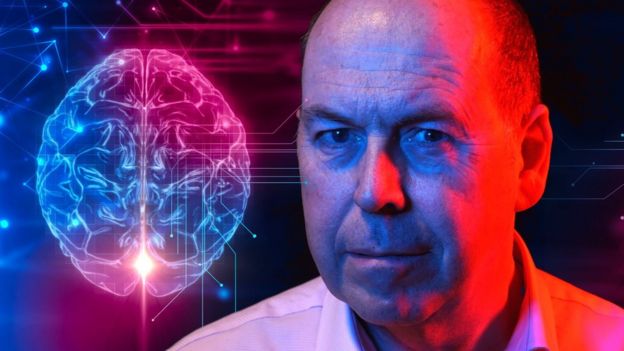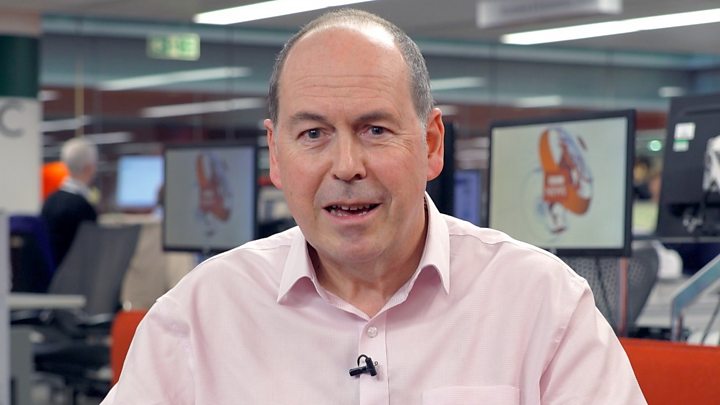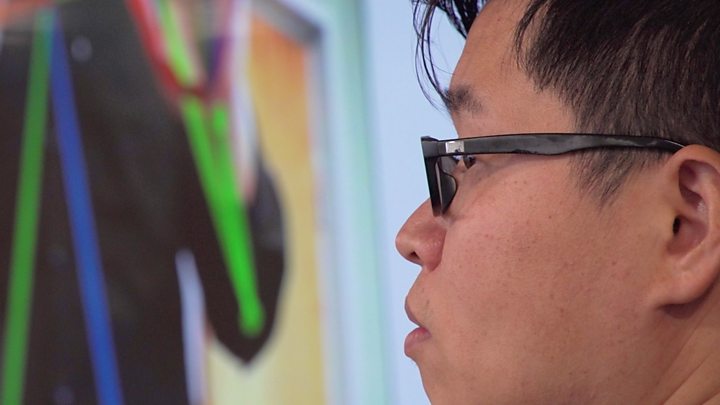
In my work as a journalist I am lucky enough to meet some brilliant people and learn about exciting advances in technology - along with a few duds.
But every now and then I come across something that resonates in a deeply personal way.
So it was in October 2018, when I visited a company called Medopad, based high up in London's Millbank Tower.
This medical technology firm was working with the Chinese tech giant Tencent on a project to use artificial intelligence to diagnose Parkinson's Disease.
This degenerative condition affects something like 10 million people worldwide. It has a whole range of symptoms and is pretty difficult to diagnose and then monitor as it progresses.
Medopad's work involves monitoring patients via a smartphone app and wearable devices. It then uses a machine learning system to spot patterns in the data rather than trying to identify them by human analysis.
In its offices we found one of its staff being filmed as he rapidly opened and closed his fingers - stiffness in these kind of movements is one of the symptoms of Parkinson's.
As we filmed him being filmed, I stood there wondering whether I should step in front of the camera and try the same exercise.

For some months, I had been dragging my right foot as I walked and experiencing a slight tremor in my right hand.
Getting to grips
I had first dismissed this as just part of getting older, but had eventually gone to see my GP.
She had referred me to a consultant neurologist, but at the time of filming I was still waiting for my appointment.
As we left Medopad, I clenched and unclenched my fingers in the lift and reflected on what I had seen. A few days later my coverage of the project appeared on the BBC website.
Three months on, in January this year, I finally met the consultant.
She confirmed what I had long suspected - I was probably suffering from idiopathic Parkinson's Disease. The "idiopathic" means the cause is unknown.
As I got to grips with the condition and started a course of medication, I quickly found out that there are all sorts of unknowns for people with Parkinson's.
Why did I get it? How quickly will the various symptoms develop? What are the hopes of a cure?
There are no reliable answers.
My response has been to take a great interest in how the technology and pharmaceutical industries are investigating the condition.
Developments in artificial intelligence, coupled with the availability of smartphones, are opening up new possibilities, and this week I returned to Medopad to see how far it had progressed.

I asked the firm's chief executive, Dan Vahdat, whether he had noticed anything that suggested I might have a special interest in Parkinson's when I first visited.
"I don't think we noticed anything specifically," he said.
"But - and that's weird for me to tell you this - I had this intuition that I wanted to get you to do the test."
That, of course, did not happen but over the last year there has been a clinical trial involving London's King's College Hospital.
People with Parkinson's have been given a smartphone app, which their relatives use to record not just that hand-clenching exercise but other aspects of the way they move.
"We think this technology can help to quantify the disease," Dan explained.




0 Comments